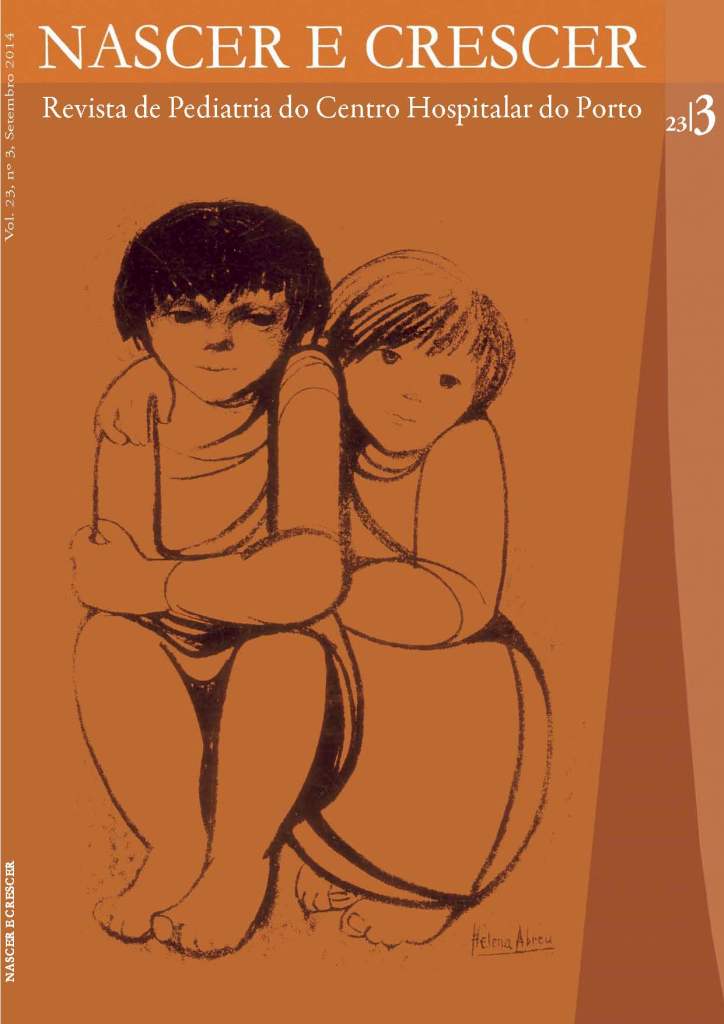Informed consent of women attended by students of medicine performing gynecological examination in obstetrics and gynecology clinic of Fundação Santa Casa da Misericórdia do Pará
DOI:
https://doi.org/10.25753/BirthGrowthMJ.v23.i3.8705Keywords:
Academic Medical Centers, education and health, Informed Consent, womenAbstract
Introduction: The classes are crucial for medical training. However, issues such as obstetrics and gynecology, physical examination is deeply intimate, dealing with areas of the human body which prevail prejudices and taboos.
Objective: Evaluate the consent form from women assisted by undergraduate students of medicine at teaching hospital in the state of Pará Reference.
Method: The study will be conducted in the months from March to April 2013, with a sample of 110 women attended by undergraduate’s medicine in obstetrics and gynecology clinic of a teaching hospital.
Results: The majority of women at study had clarifi cation on the gynecological examination to be performed (79%) and claim that consent was required for the exam (58%), which occurred without pain or discomfort (55%), and 66% of graduates went on to conduct the test in the presence of pain or discomfort. After performing the same 41% of women reported feeling ashamed and who did not receive clarifi cation revealed that they would feel better (48%) or indifferent (48%) if they received. 62% reported not being asked to participate in the graduate examination, however his conduct was considered adequate (64%), and seriously environment during the exam (65%). 55% of women report having knowledge of an academic teaching hospital.
Conclusion: Most women got clarifi cation about the gynecological examination, especially by the physician preceptor, claim that consent was required for the exam, and was not questioned the participation of the student in the meantime.
Downloads
References
Gilbert ACB, Cardoso MH, Wuillaume SM, Jung MP. Discursos médicos em construção: um estudo com residentes em Obstetrícia/Ginecologia do Instituto Fernandes Figueira/Fiocruz. Rev bras educ med. Rio de Janeiro. 2009; 33:615-23.
CREMESP. Manual de ética em ginecologia e obstetrícia. 3. ed. São Paulo: Conselho Regional de Medicina do Estado de São Paulo, 2004.
Ferreira MLSM, Oliveira C. Conhecimento significado para funcionárias de industrias têxteis sobre prevenção do câncer do colo uterino e detecção precoce do câncer da mama. Rev Bras Cancerol 2006; 52:5-15.
Oliveira M. Cresce o número de denúncias médicas em São Paulo. Notícias do Brasil. 8. ed. São Paulo, p.12-13, 2005.
Barbeiro FMS, Cortez EA, Oliveira PAMC, Silva ALO. Cuidado é fundamental. 2009. Disponível em: <http://www.seer.unirio.br/index.php/cuidadofundamental/article/view/419/401>. Acedido em: 01 Jun 2013.
Berlinguer G. Ética da saúde. São Paulo: Hucitec. 1996.
Brito CMS, Nery IS, Torres LC. Sentimentos e expectativas das mulheres acerca da Citologia Oncótica. Rev Bras Enferm 2007 jul-ago; 60(4):387-90.
Martins DM, Amaral JL, Dourado MT, Gomes NC. Consulta coletiva: o espaço da mulher. Cad Saúde Pública 1991;7:267-83.
Duavy LM, Batista FL, Jorge MS, Santos JB. A percepção da mulher sobre o exame preventive do câncer cévico-uterino: estudo de caso. Ciência saúde coletiva 2007; 12:733-42.
Ferreira MLSM, Oliveira C. Conhecimento e significado para funcionárias de indústrias têxteis sobre prevenção do câncer do colo-uterino e detecção precoce do câncer da mama. Rev Bras Cancerol 2006; 52: 5-15.
Downloads
Published
How to Cite
Issue
Section
License
Copyright and Authors' Rights
All articles published in Nascer e Crescer - Birth and Growth Medical Journal are Open Access and comply with the requirements of funding agencies or academic institutions. For use by third parties, Nascer e Crescer - Birth and Growth Medical Journal adheres to the terms of the Creative Commons License "Attribution - Non-Commercial Use (CC-BY-NC)".
It is the author's responsibility to obtain permission to reproduce figures, tables, etc. from other publications.
Authors must submit a Conflict of Interest statement and an Authorship Form with the submission of the article. An e-mail will be sent to the corresponding author confirming receipt of the manuscript.
Authors are permitted to make their articles available in repositories at their home institutions, provided that they always indicate where the articles were published and adhere to the terms of the Creative Commons license.


